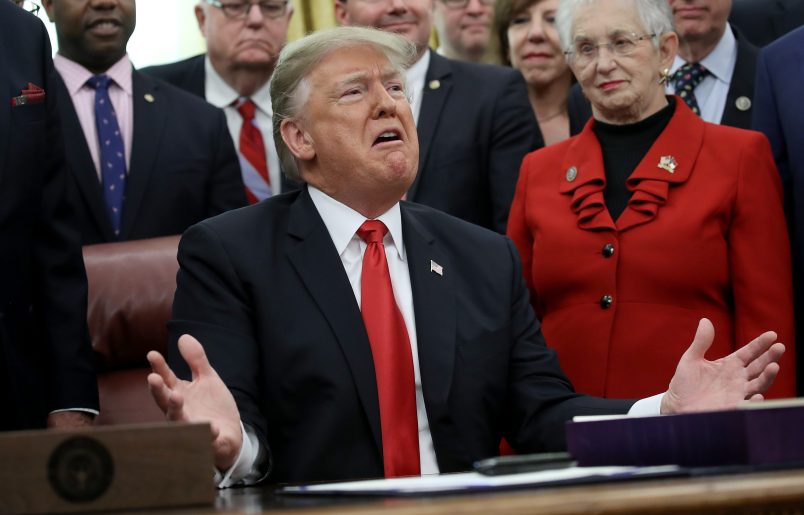The mystery over what a confidential intelligence community whistleblower is trying to tell Congress deepened late Wednesday, with multiple news outlets reporting that the complaint had to do with a call between the President and a foreign leader.
Former intelligence officials were alarmed at the reporting, which suggested that the whistleblower complaint had to do with an unknown “promise” that President Trump made to an unknown foreign leader.
Dan Meyer, a former head of the intelligence community whistleblower program and current managing partner at the Tully Rinckey law firm’s DC office, expressed a mixture of alarm and bewilderment at the situation to TPM.
Meyer told TPM that “politicizing the disclosure process” makes it appear that “personal agendas” are being placed “over the work of the Republic, which is to identify the enemy of the State and take it out before it harms America or its allies.”
Meyer was fired from his position in the government last year; Sen. Chuck Grassley (R-IA) sent an angry letter to the DNI office over the dismissal, saying it raised concerns over whistleblower protections in the intelligence community.
Meyer added that in normal circumstances and on “major operational issues,” Congress would typically be briefed before a whistleblower appears.
“The real fear is the handling of less obvious disclosures regarding personnel corruption within the federal government,” Meyer added, though he was limited in what he could discuss by a non-disclosure agreement with the DNI.
Asha Rangappa, a former FBI agent and CNN analyst, wrote on Twitter that the U.S. system is “not designed to address, expose, or neutralize a national security threat” when the president himself is the threat.
At the same time, and as Rangappa noted, the president has wide range to enact foreign policy in line with his preferences.
The statute that governs whistleblowing in the intelligence community, in fact, limits the subjects of potential complaints only to issues that don’t have to do with disagreements on public policy. The statute expressly “does not include differences of opinions concerning public policy matters.”
Oddly enough, Meyer told TPM, acting Director of National Intelligence Joseph Maguire had another, more effective option to shut down the complaint earlier on.
Now, after getting bruised in a very public battle with House Intelligence Committee Chair Rep. Adam Schiff (D-CA). Intelligence Community Michael Atkinson faces public testimony next Thursday, after a private session that was scheduled to start at 9 a.m. ET Thursday.
Meyer told TPM that the law governing whistleblower disclosures contains a little-known (and never-invoked) provision to block inspector general investigations if doing so is deemed necessary “to protect vital national security interests of the United States.”
“For national security lawyers in town, the question is why DNI Maguire did not invoke the muzzle Congress has given him,” Meyer said, adding that “for some reason, confrontation with [Intelligence Community Inspector General Michael] Atkinson and Schiff was the chosen path.”
Trump himself addressed the reporting in a series of tweets on Thursday, asking if anyone was “dumb enough to believe that I would say something inappropriate with a foreign leader while on such a potentially ‘heavily populated’ call.”
After all, the President noted, “virtually anytime I speak on the phone to a foreign leader, I understand that there may be many people listening from various U.S. agencies, not to mention those from the other country itself. No problem!”
Another Fake News story out there – It never ends! Virtually anytime I speak on the phone to a foreign leader, I understand that there may be many people listening from various U.S. agencies, not to mention those from the other country itself. No problem!
— Donald J. Trump (@realDonaldTrump) September 19, 2019
….Knowing all of this, is anybody dumb enough to believe that I would say something inappropriate with a foreign leader while on such a potentially “heavily populated” call. I would only do what is right anyway, and only do good for the USA!
— Donald J. Trump (@realDonaldTrump) September 19, 2019






